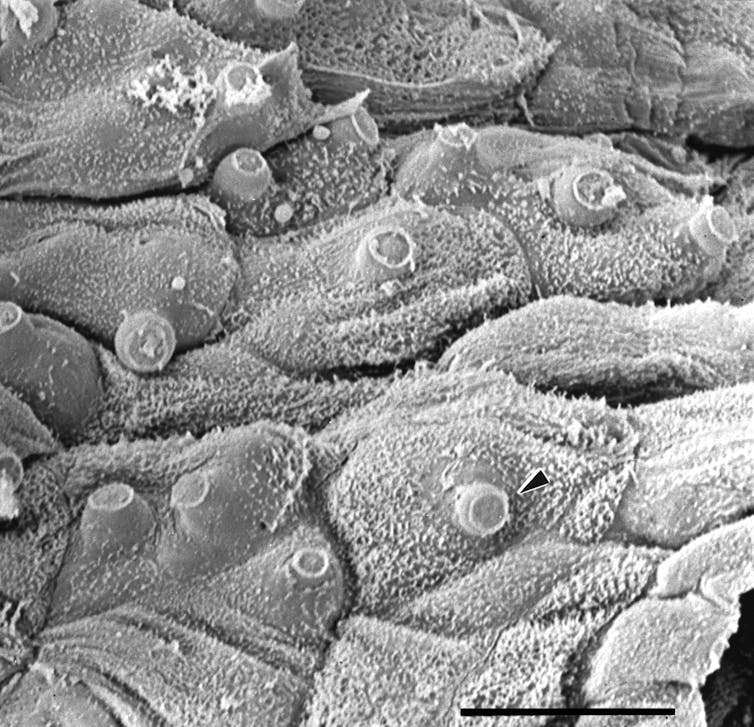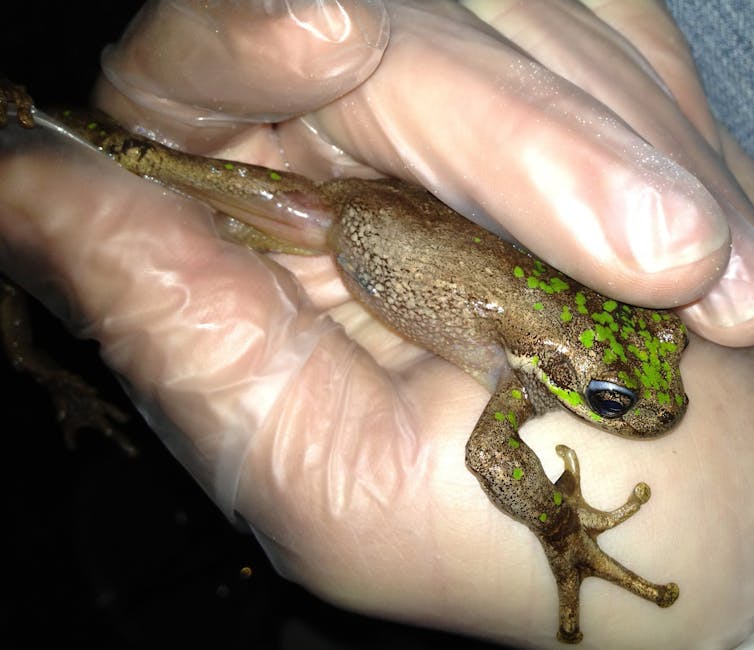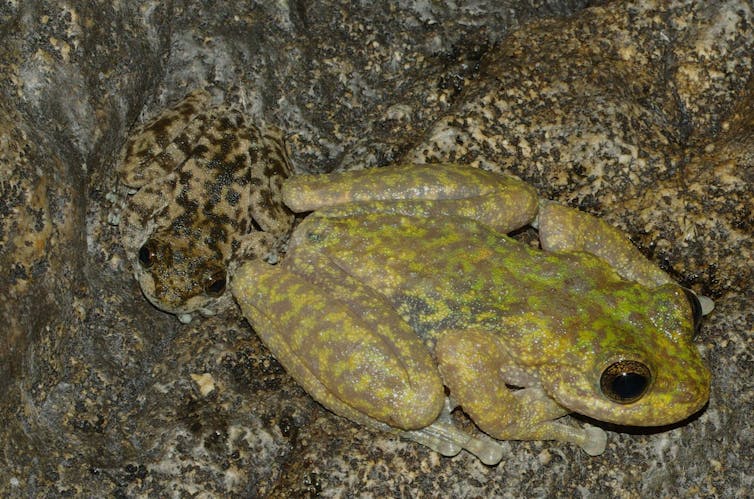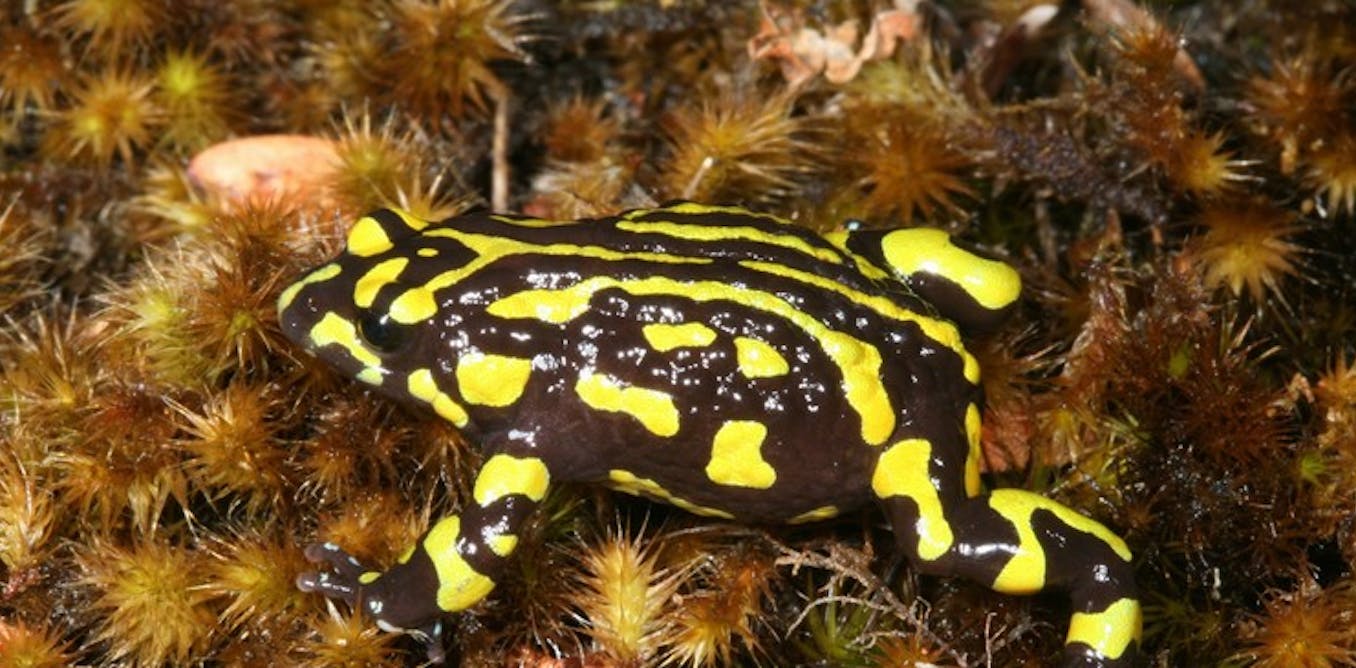[ad_1]
All through the late Nineteen Seventies in southeast Queensland, a silent killer arrived on Australian shores. The victims had been our distinctive frogs, with the primary to fall being the distinctive gastric brooding frog, final seen in 1981.
Higher than three a really very long time on, everybody is aware of that the killer was a illness often called chytridiomycosis, attributable to amphibian chytrid fungus.
This fungus is answerable for the presumed extinction of an extra 5 Queensland frog species, and the decline and disappearances of many native populations all via Australia’s full east coast and tablelands, together with species that had been as shortly as widespread and customary. Globally, a complete lot of amphibian species have furthermore suffered foremost declines or in the interim are thought-about to be extinct on account of this illness.

Picture Lee Berger
In a research printed in Wildlife Analysis, we and our colleagues determine seven additional Australian frogs which is perhaps at speedy danger of extinction by the fingers of chytrid fungus, together with the long-lasting Corroboree frogs (each southern and northern species), Baw Baw frog, seen tree frog, Kroombit tinker frog, armoured mist frog and the Tasmanian tree frog. We predict that the next couple of years would possibly present the last word likelihood to save lots of numerous loads of these species.
Whereas the six already extinct Queensland species all declined quickly after the arrival of chytrid, declines in southern areas have been slower. Chytrid is nonetheless to realize in areas of Tasmania’s Wilderness World Heritage Home, though the implications often are typically merely as extreme.
Our work aimed to prioritise frog conservation efforts all via Australia, figuring out the species most liable to chytrid, and subsequently most in want of pressing motion. Worryingly, we discovered that 5 of the seven high-risk species that we acknowledged lack a sustained and adequately funded monitoring program to guard them.
Along with the seven species at speedy danger of extinction, we acknowledged an extra 22 which is perhaps at widespread to low danger. We furthermore assessed the adequacy of present conservation efforts for all of those species, and positioned that almost all restoration efforts rely on the goodwill of people and are poorly resourced.

A healthful Tasmanian tree frog.
It’s doable to take care of the menace posed by chytrid fungus, nonetheless fast motion is urgently wanted. We now have acknowledged six crucial administration actions which is perhaps required to forestall additional extinctions of Australian frogs and title for an impartial administration and analysis fund to maintain the approaching menace.
The seven species at excessive danger require proactive restoration capabilities. Important administration actions would possibly embrace: broad-scale surveys; intensive monitoring; exact danger evaluation; the event of husbandry strategies for the institution of assurance colonies; re-introductions and or translocations; and new administration methods to take care of up wild populations.
Australia initially led the world in efforts to search out out and take care of chytrid fungus, which was listed as a “key threatening course of” by state and federal governments in 2002
In 2006, a plan was drawn up to fight the illness, delivering additional analysis funding and leading to drastically improved biosecurity measures and elevated understanding of the fungus.
In 2012 the plan was reviewed, and a revised plan that options current analysis developments now awaits approval. Nonetheless motion is required to take care of the impression of the fungus, and disappointingly there was no funding allotted to implement the mannequin new plan.

Blink and as well as you’ll miss them: the armoured mist frog (left) and waterfall frog.
The sooner decade has furthermore seen foremost cuts in each state and federal authorities belongings for wildlife conservation. State companies have disbanded devoted restoration groups and there was a shift away from single species conservation measures in an effort to maximise restricted funding. That is regardless of the obligations set out in authorized pointers to guard particular explicit particular person threatened species. These cuts have severely undermined frog conservation efforts.
These frogs shouldn’t be allowed to go the same methodology because of the Christmas Island pipistrelle, which might arguably have been saved if the federal authorities had heeded scientists’ warnings.
On a constructive observe, administration interventions have saved the critically endangered Southern Corroboree Frog from extinction for now, nonetheless it stays threatened by chytrid fungus and requires ongoing administration and analysis. With out swift motion, authorities help and the devoted efforts of many people, this species would undoubtedly already be gone.
[ad_2]
